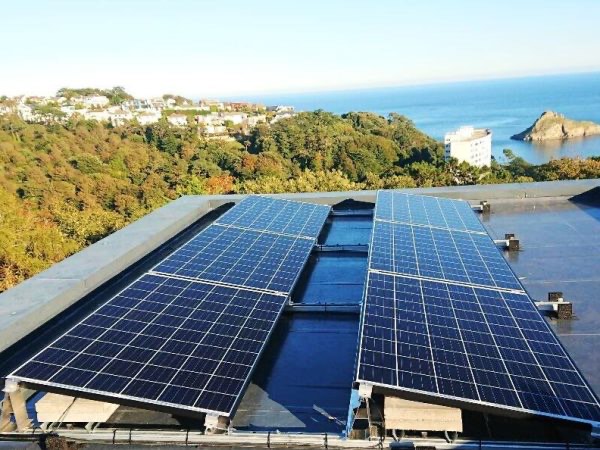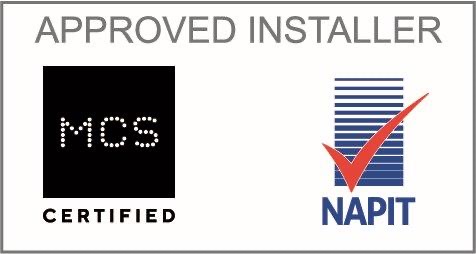How Much Will Solar Panels Save Me?
At Callidus, we can install a 4.05kW solar PV system for £4,600 which can provide significant cost savings for our customers.
Since 2010, we have served both residential and commercial clients as off grid power specialists, solar energy installers, and battery storage experts. In our eleven years of service, our reliable and high quality solar panel installations have assisted countless projects in discovering the benefits of renewable energy.
Here’s how our solar panels can save you money in 5 easy steps:
- Smaller energy bills: By generating electricity from solar power, customers can significantly reduce their reliance on grid supplied energy. The solar PV system’s estimated annual generation of 4,100kWh can offset a substantial portion of any household’s electricity consumption. As a result, you will purchase less electricity from your energy provider, leading to lower electricity bills.
- Smart Export Guarantee (SEG) income: In the UK, those who own solar PV systems are eligible to receive payments for the electricity they put back into the grid through the Smart Export Guarantee (SEG). With our systems, Callidus can earn income for every unit of electricity their system exports back to the grid, further reducing their overall energy costs.
- Energy price inflation protection: Traditional energy prices tend to increase over time due to various factors, such as inflation and changes in energy market conditions. By generating their own solar power, customers can reduce the impact of rising energy prices. Solar energy is a renewable resource, and once the system is installed, the fuel (sunlight) is free, providing a stable and predictable source of electricity.
- Return on investment (ROI): The initial cost of £4,600 for the solar PV system can be seen as an investment. Over time, the savings on electricity bills and potential income from SEG can contribute to a positive return on investment. The exact payback period and ROI will depend on various factors such as electricity consumption, local energy prices, and any available incentives or subsidies.
- Environmental benefits: Apart from the financial savings, installing solar panels also brings environmental advantages. Solar power is a clean and renewable energy source that produces no greenhouse gas emissions during operation. By generating electricity from solar energy, customers contribute to reducing carbon emissions and their overall environmental impact.
It’s important to note that the specific financial benefits for each household may vary depending on individual circumstances, such as energy consumption patterns, available incentives, and local energy policies.
Get in touch with one us at Callidus and we can provide a more accurate assessment of your potential cost savings.
Cost Savings Calculations:
Based on the provided monthly generation estimates for the 4.05kW solar PV system, let’s calculate the potential cost savings for a customer paying 38p per kWh:
- January: The system is estimated to generate 124kWh. By using solar power instead of purchasing electricity at 38p per kWh, the customer could save 124 kWh * £0.38 = £47.12.
- February: The estimated generation is 187kWh. The potential savings would be 187 kWh * £0.38 = £70.94.
- March: The estimated generation is 364kWh. The potential savings would be 364 kWh * £0.38 = £138.32.
- April: The estimated generation is 455kWh. The potential savings would be 455 kWh * £0.38 = £172.90.
- May: The estimated generation is 496kWh. The potential savings would be 496 kWh * £0.38 = £188.48.
- June: The estimated generation is 559kWh. The potential savings would be 559 kWh * £0.38 = £212.42.
- July: The estimated generation is 579kWh. The potential savings would be 579 kWh * £0.38 = £220.02.
- August: The estimated generation is 476kWh. The potential savings would be 476 kWh * £0.38 = £180.88.
- September: The estimated generation is 372kWh. The potential savings would be 372 kWh * £0.38 = £141.36.
- October: The estimated generation is 248kWh. The potential savings would be 248 kWh * £0.38 = £94.24.
- November: The estimated generation is 174kWh. The potential savings would be 174 kWh * £0.38 = £66.12.
- December: The estimated generation is 104kWh. The potential savings would be 104 kWh * £0.38 = £39.52.
Therefore, with the 4.05kW solar PV system generating electricity throughout the year, a customer paying 38p per kWh could potentially save approximately £1,572.30 annually on their electricity bills!
These figures would be available if a customer was able to use all the electricity generated (which isn’t likely), so we use the MCS data and work with our customers by using 50% of what they generate. Which means that this system would have a payback around year 5.
Battery Savings in 4 Steps:
If a customer is only using 50% of the generated power and exporting the remaining 50% at a rate of £0.10 per kWh, adding a battery to the solar PV system can significantly increase cost savings.
Here’s how a solar panel battery can enhance your savings:
- Increased self consumption: By integrating a battery storage system, excess solar power that is not used by your home can be stored in the battery instead of being exported to the grid. This energy can then be utilised powercuts and blackouts. As a result, the customer can further reduce their electricity purchases from the grid, leading to you saving money every month!
- Energy Prices: Electricity prices can vary throughout the day, with higher rates during peak hours and lower rates during off-peak hours. By optimising your energy usage, you can minimise the reliance you have on grid electricity during expensive peak periods.
- Grid independence during power outages: In the event of a power outage, a battery solar PV system can provide backup power to essential appliances or the entire home. This allows the customer to maintain electricity supply even when the grid is down, ensuring uninterrupted power. This feature adds value and peace of mind, particularly in areas prone to blackouts or unreliable grid infrastructure.
- Avoiding low export rates: Without a battery, the excess solar energy not used by the customer would be exported to the grid at a relatively low rate (£0.10 per kWh). By storing the excess energy in a battery instead of exporting it, you will avoid receiving the lower export rate. This helps maximise the financial benefit by utilising the stored energy when electricity prices are higher or when your electricity consumption increases.
Your Solar Panel Specialists
If you have any further questions or concerns about living off the grid with solar energy, please contact our Help Desk. You can also call us at 01626 905454 or use our online contact form, and one of our experts will contact you as soon as possible.
At Callidus, we strive to make the transition to renewable energy sources as simple and painless as possible. Get a personalised price estimate by using our FREE online quoting engine and take the first step towards a more sustainable lifestyle.













